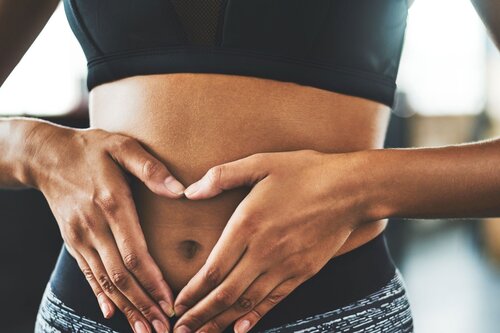Protein powder is your solution. Around 50% of Australian adults experience some variety of unpleasant gut symptoms – from excessive gas to bloating and constipation.*
Add to that, Australians also spend a lot of money on their health – over $2 billion per year on supplements, including protein powders. So, what if you found out that you were getting only half the desired benefit from your protein powder and it was triggering side effects? Nobody likes to waste money, but optimizing your protein powder intake can be done.
Signs you need a digestive enzyme
Whether you choose a whey or a plant protein source – such as hemp, brown rice, or pea – protein requires optimal digestive function to derive the benefits.
Some signs that you may be struggling to digest your protein powder include:
• A heavy feeling or fullness in your abdomen hours after your last meal or protein shake
• fatigue that sets in approximately 20-30 minutes after eating
• bloating or having excessive gas
• a habit of regularly eating on the run, while stressed or distracted, or not chewing your food well (even protein shakes require you to chew!
• struggles with IBS-type symptoms.
Why are digestive enzymes important when using a protein powder?
Digestive enzymes are produced by the body in response to eating. In an ideal world, you would always produce exactly the right amount of digestive enzymes needed to break down whatever you’ve eaten – but the nature of modern life hasn’t been kind to the gut health of humans. We’re pulled in multiple directions, stressed, and have less of the good bacteria and enzymes we need for optimal digestion. Add to that, many of us are time-poor, which is precisely one of the reasons that protein powders are so popular.
The enzyme protease is required to break down proteins into their smaller building blocks called ‘amino acids’ – these are vital to countless areas of health, including the production of neurotransmitters, such as serotonin and dopamine, the repair and growth of muscles, and the production of immune-protective cells. When there isn’t enough protease, the body misses out on those essential amino acids – bye-bye gains, bye-bye good mood.
Proteins that don’t get broken down properly also sit in the gut for longer periods. The slower breakdown leads to fermentation in the gut, producing gas, bloating, and constipation, and an imbalance of good and bad bacteria known as ‘dysbiosis’.**
Which is better, digestive enzymes or probiotics?
Both probiotics and digestive enzymes are equally important – combining the two provides full spectrum gut health support. Digestive enzymes ensure that the gastrointestinal system is prepared to handle the breakdown of macronutrients. Near the end of the digestive process, probiotics see to the absorption of the micronutrients (vitamins and minerals) and macronutrients from what you’ve just eaten.
Regularly including probiotics in your diet can also help to reduce the likelihood of gut symptoms from anything else in your diet. Several probiotic strains have been shown to help in the treatment of constipation, diarrhea, and excess gas, and soothe and heal the gut over time.***
Moreover, if you’re struggling with symptoms of digestive distress, you may not be getting the most out of your protein powder. A combination of plant-based protein, digestive enzymes, and probiotics ensures that your body is optimally fuelled by your choice of protein–positive side effects only.
References:
1. Belobrajdic, D., Brownlee, I., Hendrie, G., Rebuli, M., Bird, T. (2018). Gut health and weight loss. CSIRO, Australia.
2. Riccio, P. & Rossano, R. (2019). Undigested Food and Gut Microbiota May Cooperate in the Pathogenesis of Neuroinflammatory Diseases: A Matter of Barriers and a Proposal on the Origin of Organ Specificity. Nutrients, 11(11):2714.
3. Harvard Health Publishing. (2020). Health benefits of taking probiotics. Accessed May 2021 from https://www.health.harvard.edu/vitamins-and-supplements/health-benefits-of-taking-probiotics

